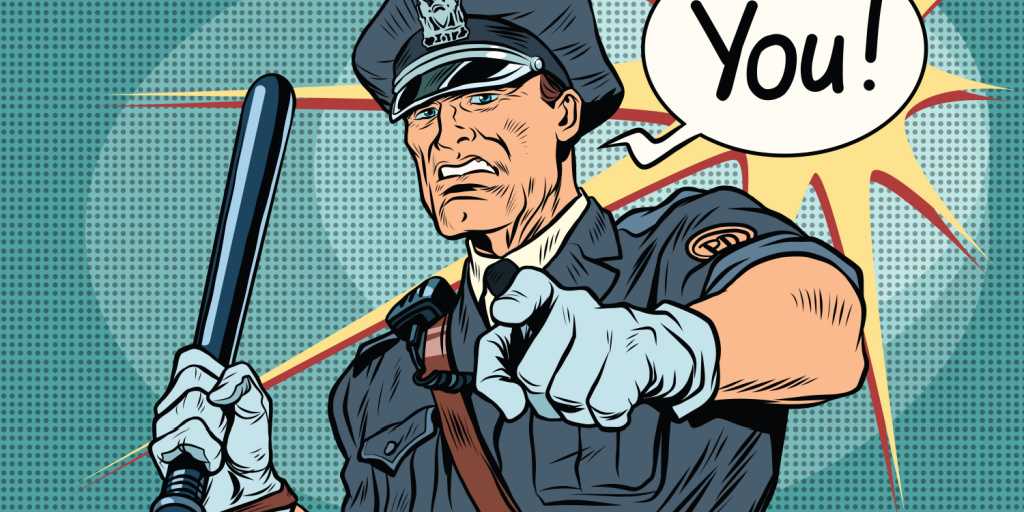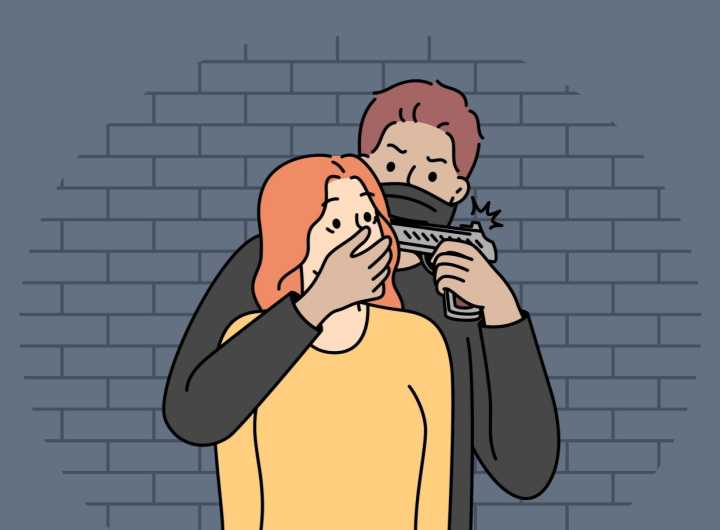Do I Have a Right to a Lawyer in a Misdemeanor Criminal Case
Last time we talked about the infamous Miranda warnings, outlining when police have to give you those warnings and an opportunity to have a lawyer present or consulted before any questioning. That’s a constitutional right, known as the Fifth Amendment right to Counsel. But there’s a separate right to counsel contained in the Sixth Amendment, that isn’t quite as dependent on you asking for counsel. One that is easy to overlook, and could have significant consequences in certain seemingly “minor” criminal cases.
Introduction to Sixth Amendment Right to Counsel
The Sixth Amendment of the United States Constitution provides each person investigated or arrested by the police, or charged with a crime, the right to an attorney at “all critical stages of proceedings.” A few things to keep in mind at the outset.
First, the Sixth Amendment Right to Counsel applies only after arrest, charging, indictment, arraignment or commencement of “formal” proceedings. United States v. Holness, 706 F.3d 579, 593(4th Cir . 2013). That means, at the least, only after arrest. The US Supreme Court has held that the right attaches as late as a defendant’s “initial appearance.” Rogthgery v. Guillispe County, 554 US 191, 2013 (2008). So before police “arrest” you, your right to counsel is contained in the Fifth Amendment.
Second, stated another way I can’t emphasize strongly that prior to initiation of criminal proceedings a defendant has separate right to counsel during any “custodial questioning.” That’s the Miranda warnings that we covered in the last blog. I refer you back to that. But keep reading here, because the Sixth Amendment Right to Counsel is powerful and can help.
Third, the Sixth Amendment right to counsel, when it attaches is not dependent upon you asking for an attorney, at least when it comes to police questioning.
But this is not, as a practical matter, the case for getting an appointed lawyer in a seemingly minor case.
On the one hand, when the Sixth Amendment Right to Counsel attaches, it is so absolute it is not necessary that you ask for an attorney. This means that any questioning police or law enforcement do with you that is fairly designed to “deliberately” elicit incriminating responses after any critical stage, certainly not before arrest, can be violative of your rights even if you hadn’t asked for a lawyer.
But what about in court?
But why or why not ask for a Lawyer at your First Opportunity?
Fourth, the right to counsel in a criminal proceeding once it attaches is constitutionally “absolute.” In theory, if not practice, an indigent defendant—one who cannot afford counsel—has an absolute right under the Sixth Amendment to have no cost or low cost counsel appointed by the court. Gideon v. Wainright 372 U.S. 335, 342 (1963)
But the practice is many limited jurisdiction courts (town and city courts and county justice courts) however, because of limited resources is to only appoint an attorney for an indigent defendant if the prosecutor is asking for jail time.
What? You May Say
Yes. This comes up a lot in misdemeanor domestic violence cases, especially charges of “disorderly conduct” or low value criminal damage—a coffee cup, a telephone, a window pane—are involved.
The thinking of some of these courts is that, well, if the state is not seeking jail time, the worst that is going to happen is probation, and a fine and maybe some classes. So it’s not serious enough.
Stated another way if it’s “only” a misdemeanor, and the “State is not seeking jail” Courts may not appoint an attorney.
But in the modern age, when a “conviction” for even the most “minor” criminal offenses, can be career ending or in someways important and all too often life altering events—and this is not an overstatement, I think that judicial thinking, and mind you, I understand that courts are short on funds, that sort of thinking puts many decent people in peril, and unnecessarily so.
For example, I once had a case for a career prison guard who got charged with domestic violence/criminal damage for breaking a telephone. No priors. Good job. His domestic partner didn’t want to pursue the case (he replaced the phone right away). The prosecutor was not asking for jail time.
My client lived in the suburbs of Phoenix, in a place called “Buckeye” and went to a small town court. He wanted to get the case over with right, away so he pled guilty at the first appearance and the judge—who I believe was not a lawyer, accepted his guilty plea. The prosecutor was present but said nothing.
But no sooner my prison guard soon-to-be client plead “guilty” than he was unceremoniously removed from his job. Fired. He then came to me for help.
And I did help him in the end. But it took months and months to undo the damage. I challenged the uncounseled guilty plea to domestic violence in an appellate court, in a formal appellate proceeding and fortunately I was able to get the conviction reversed and all charges dismissed. For good. He got his job back, but only after many months of being out of work.
Yet, if my client had known at his first court appearance, what he knows now, it might have saved him a lot of heartache. He didn’t know it at that first appearance that he had the right to counsel right then and there.
My advice to all people is that any time they are charged with any criminal complaint, no matter how seemingly minor, be it disorderly conduct for shouting, criminal damage for breaking a telephone, trespassing on a golf course, dog at large, or even “littering,” it makes sense, complete sense, to either consult an attorney, or if you really cannot afford one, ask the Judge that an attorney be appointed at your initial appearance or arraignment.
You win both ways. If the judge appoints one, you have a great benefit. But if the judge does not, and I think most judges when you explain the situation will, at least you’re made a record of wanting an attorney.
How to Ask for an Attorney is a misdemeanor case where the State is not Asking for Jail Time.
I think a good way to approach a judge when asking for an attorney in a seemingly low level charge is to explain to the court why the case could be very damaging to you, even though the worst, in the judge’s mind that could happen is that you’d get probation and maybe a fine and some classes.
For example, if you are in the military, work for Border Patrol, a police department, a sheriff’s department or a correctional institution, or work for a defense contractor, you could potentially lose your job for even what seems like “low level” misdemeanors.
The same or similar analysis applies to teachers, nurses, childcare providers, nursing home workers, and the like. In short, a large variety of skilled professionals, and care workers, especially those working with children, the elderly, and in some cases the general public, have a lot to lose.
Immigrants
This applies analysis with even more force to anyone who is not a United States Citizen, no matter what their job is. Even for those with a “green card,” and who have been living here a long time. For example a conviction by plea for low level misdemeanor drug “paraphernalia” (in exchange for dismissal of substantive drug charges)—which seems at first blush like a good deal, can under Arizona law and immigration law could have very serious consequences for an immigrant or non-citizen. And for non-immigrant Visa Holders, and people with special circumstances like DACA beneficiaries, even more care must be taken.
Conclusion
The long and the short of all this is, in many if not most situations, there is little or nothing to lose by asking the judge for a lawyer at your first opportunity, and surely not before accepting any plea, diversion offer that involves any admissions, or otherwise dealing with the case. Or at least consulting with one.
Recommended Articles

Arizona’s new sealing statute is a powerful way for people who have been charged or convicted of many common offenses, to be able to say “no” in many instances.

In Arizona, “Aggravated Assault” charged under ARS § 13-1204 is a Class Four Felony, and in some cases with mandatory prison.

DUI or domestic violence police misconduct even if not resulting in grievous misfortune can sometimes provide a helpful remedy for the criminally accused.

people are surprised by how outsized the consequences some misdemeanor convictions can be. collateral consequences—meaning all those hidden consequences.

For thirty years two federal laws prohibited all those convicted of misdemeanor domestic violence offenses from ever possessing firearms.

About Michael Harwin
Michael’s skill and experience have been recognized repeatedly. He holds an A-V 5/5 preeminent rating by Martindale Hubbell. He has been named one of the top lawyers in Arizona by Southwest Superlawyers, and one of the best lawyers in Tucson by Tucson Lifestyle Magazine. He also has been named one of the best lawyers in the United States by BestofUS.com , and given the highest rating possible by AVVO, 10/10 Superb. Amazon Books





